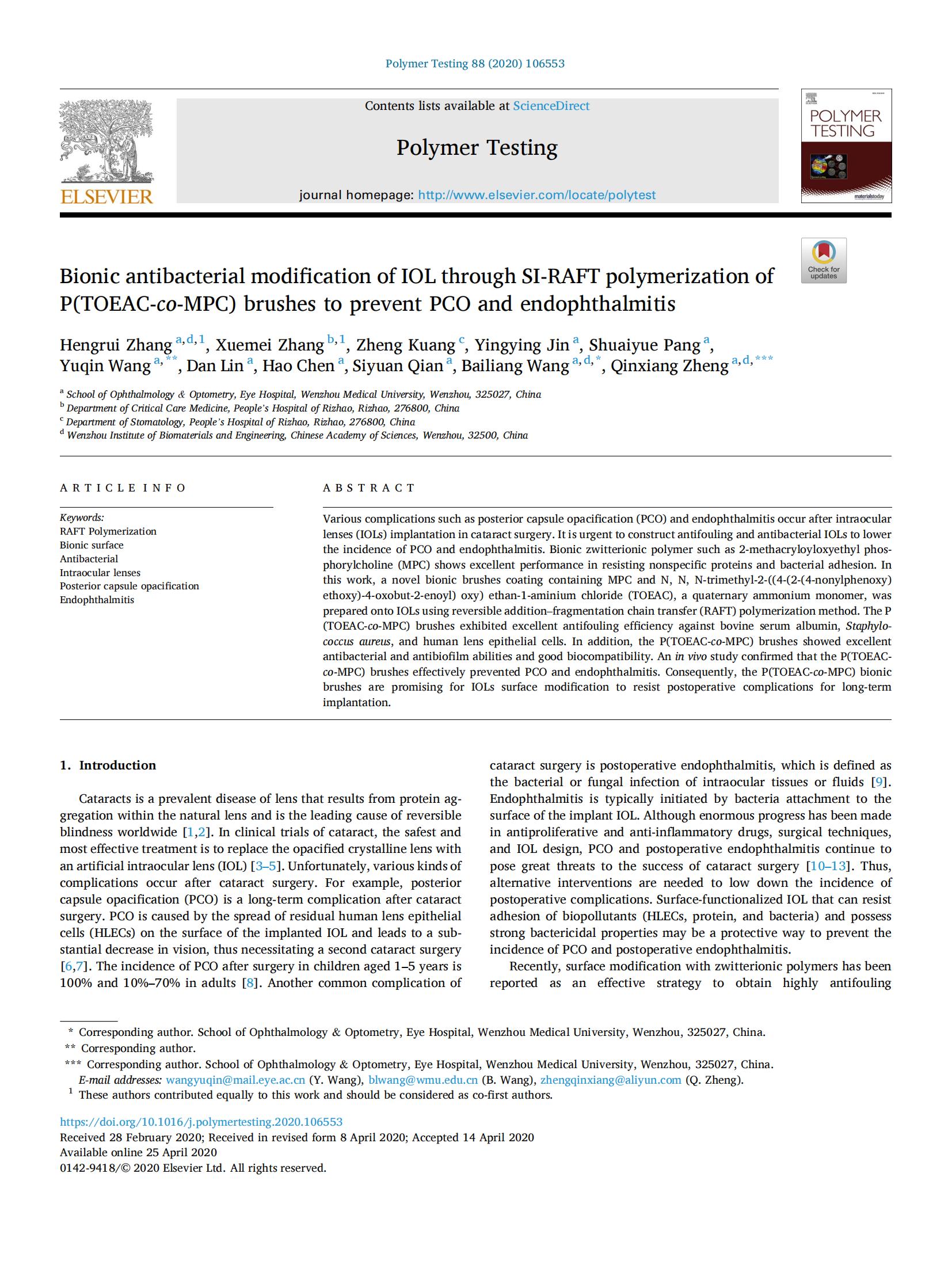Various complications such as posterior capsule opacification (PCO) and endophthalmitis occur after intraocular lenses (IOLs) implantation in cataract surgery. It is urgent to construct antifouling and antibacterial IOLs to lower the incidence of PCO and endophthalmitis. Bionic zwitterionic polymer such as 2-methacryloyloxyethyl phosphorylcholine (MPC) shows excellent performance in resisting nonspecific proteins and bacterial adhesion. In this work, a novel bionic brushes coating containing MPC and N, N, N-trimethyl-2-((4-(2-(4-nonylphenoxy) ethoxy)-4-oxobut-2-enoyl) oxy) ethan-1-aminium chloride (TOEAC), a quaternary ammonium monomer, was prepared onto IOLs using reversible addition–fragmentation chain transfer (RAFT) polymerization method. The P(TOEAC-co-MPC) brushes exhibited excellent antifouling efficiency against bovine serum albumin, Staphylococcus aureus, and human lens epithelial cells. In addition, the P(TOEAC-co-MPC) brushes showed excellent antibacterial and antibiofilm abilities and good biocompatibility. An in vivo study confirmed that the P(TOEAC-co-MPC) brushes effectively prevented PCO and endophthalmitis. Consequently, the P(TOEAC-co-MPC) bionic brushes are promising for IOLs surface modification to resist postoperative complications for long-term implantation.
